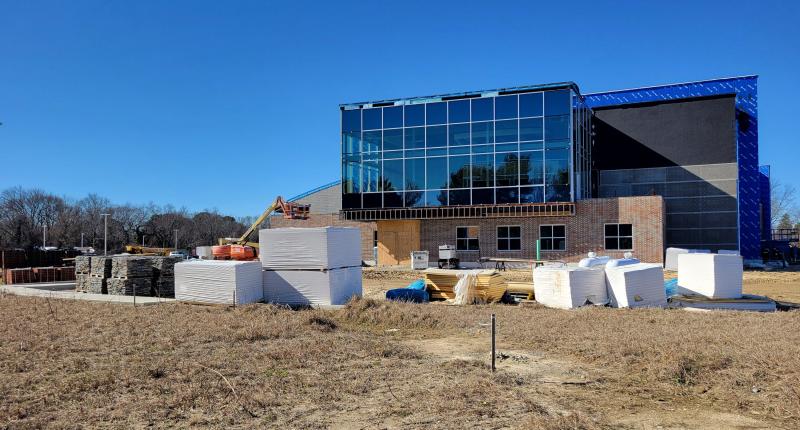The VSA issue has turned into a game of political hot potato
With a couple of kids who aren’t too many years away from attending Cape Henlopen School District’s already-too-small high school, I’ve been paying close attention to the voluntary school assessment debate.
Unfortunately, it appears, the issue is caught in a hot potato game of political showmanship. I’m not surprised. It is an election year.
Sen. Russ Huxtable, D-Lewes, introduced the enabling legislation in the closing weeks of last year’s legislative session, with it passing through the General Assembly on the final day. Comments made by Sussex County Council members at a recent meeting suggest Huxtable didn’t do much in the way of working with the county before bringing the bill forward or even seeing if the county had an appetite to implement such an assessment. Huxtable didn’t have to – he knew he had the votes to get the bill through, with or without the county’s blessing. He made the hot potato hotter and then dropped it in the laps of county council members.
Now, after months of constituents calling for action, county council members have taken that hot potato, thrown it back to Huxtable and said it’s not their problem. The reasons given by county council members aren’t particularly strong or well-reasoned, but their reaction is also not surprising. There’s a long history of county officials taking offense to state officials telling them how to run the county.
Huxtable certainly knew this was going to be the reaction, and it comes across as disingenuous for him to now say he’s willing to work with the county on making changes when he didn’t work with the county to begin with.
All that said, county officials should rethink their recent decision to not even consider an ordinance. This assessment is needed across the county, and simply kicking the issue back to the state isn’t the correct approach.
Some suggestions
Nobody has asked me for my thoughts on possible changes to the wording of the enable legislation, but here are some anyway. Do they answer all the issues? No. Will people let me know why these changes are wrong? Yes.
• I think the 85% school capacity threshold is too high. The county’s other school districts may not be dealing with the same capacity issues as Cape or Indian River school districts, but they’re dealing with aging infrastructure that needs to be fixed and old buildings that need to be renovated. Setting a capacity threshold that high will only make the issue worse for the school districts that are already at capacity. New families moving to the county are going to want to attend the school districts with the newest schools, which means people are going to live as close to those school districts as possible. Eventually, the school districts in the western side of the county will see capacity issues, but there are school districts that need help now, and lowering the capacity threshold could allow other school districts to begin much-needed renovations. Maybe the capacity threshold could be lowered to 50%, but then also have a corresponding increase in the minimum number of houses in a development that triggers the VSA from five to 10.
• I would also remove the involvement of the Delaware Department of Education. I’m not smart enough to figure it out, but if the county is going to be collecting the assessment, there’s got to be a way for the county to disseminate the assessment.
• Finally, if supporters of the voluntary school assessment want to continue to split hairs and say it’s a fee and not a tax, I would stop calling it a voluntary school assessment. According to the Merriam-Webster Dictionary, there are two definitions for the word assessment. The first is related to evaluating. The second is, “the amount assessed; an amount that a person is officially required to pay, especially as a tax.” The example used is: “the tax assessment on property.” The synonyms provided are duty, levy, imposition, tax and impost. The word fee is not mentioned.
Calling the assessment a fee when it’s a tax comes across as an elected official who doesn’t want to be seen as supporting the implementation of a new tax in a re-election year. However, this could also be said about the elected officials who have decided to not take any action at all on this much-needed tax. Aren’t election years fun?
Joke of the week:
Valentine’s Day is next week. I don’t really have anything witty to add. As always, send jokes to cflood@capegazette.com.
Q: What do you call sweets that can keep a beat?
A: Candy rappers.



















































